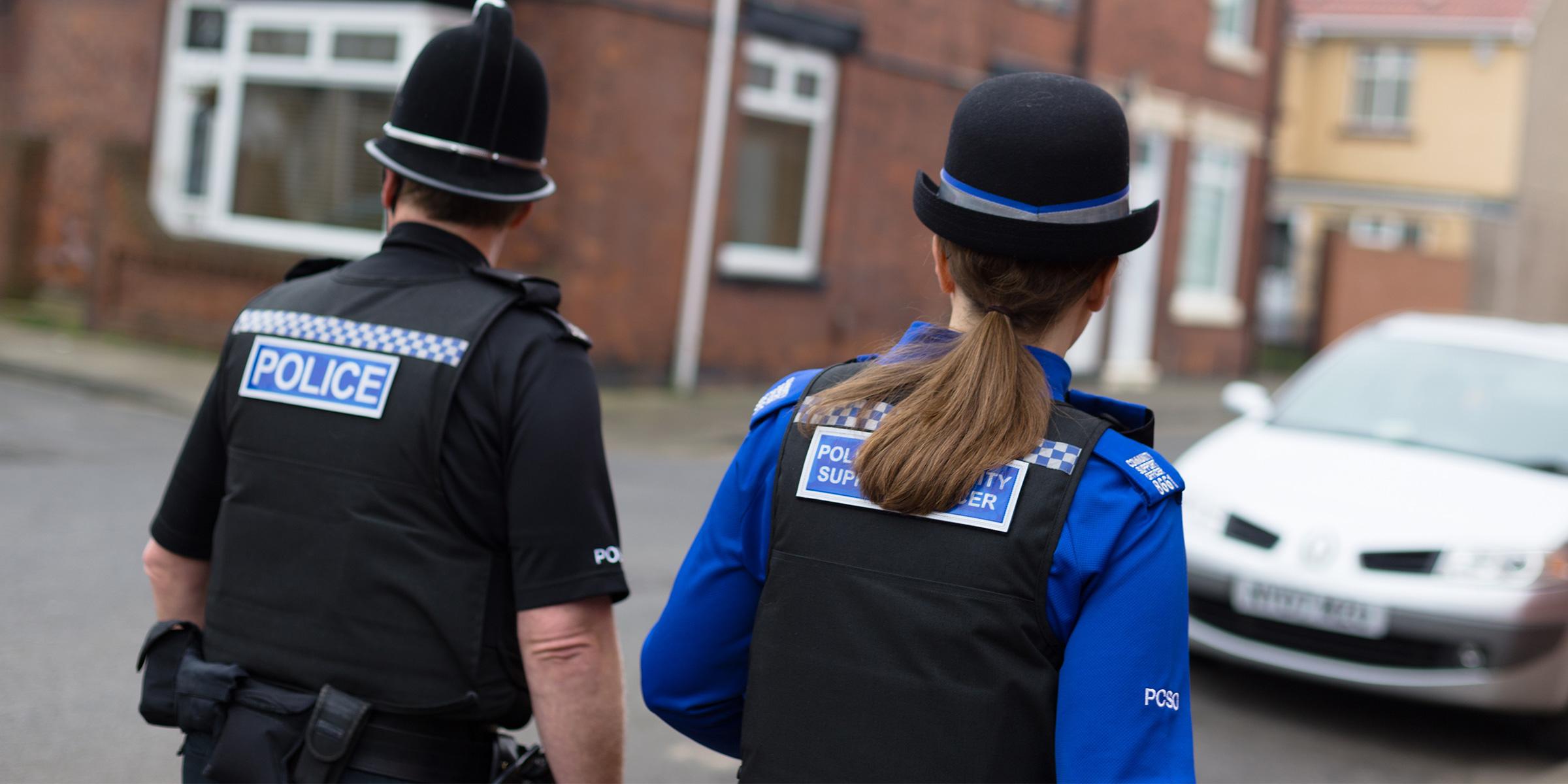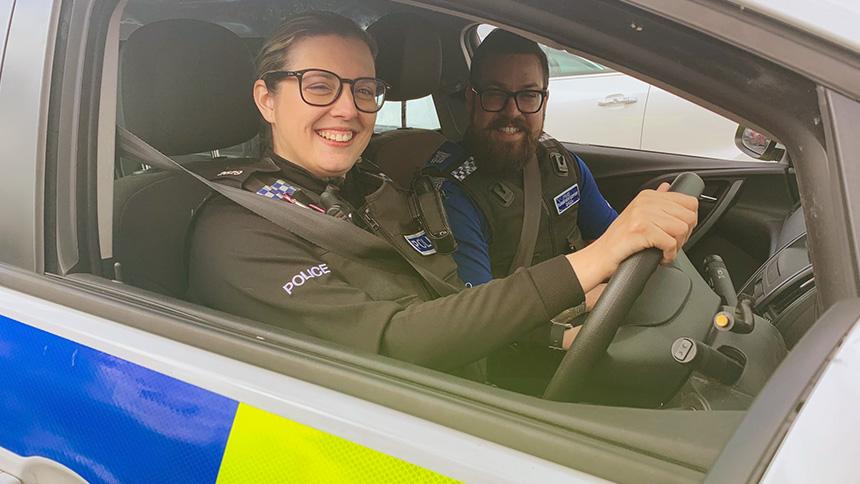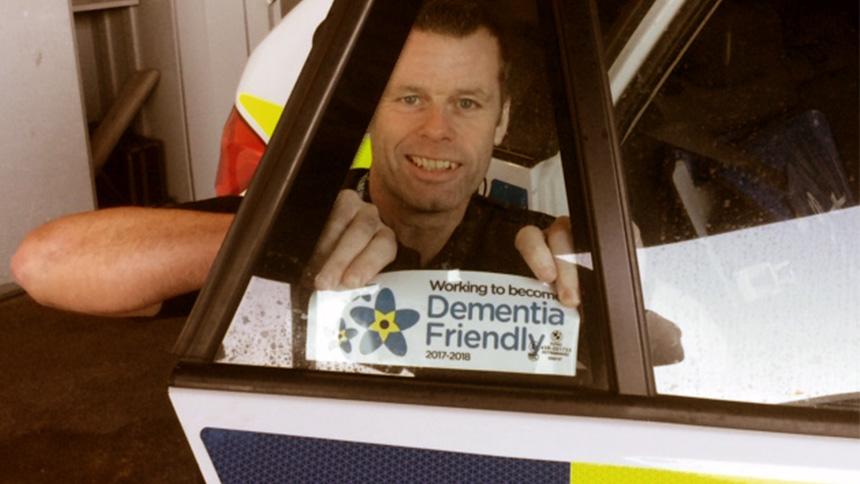
Safe havens: Helping people with dementia in a difficult situation
Cleveland Police is working with local care homes to support lost vulnerable people.
In early 2017, Cleveland Police became the first force in England and Wales to introduce a Safe Haven scheme to help protect vulnerable people with dementia.
If an officer finds someone lost or disorientated who may have dementia, they can take them to a designated local care home rather than a police station.
Skilled care home staff can make sure the person’s OK while the officer, still on hand, finds out who they are and where they live.
Compassionate care
The scheme was the idea of Inspector Phil Spencer, the force’s Blue Light Wellbeing Co-ordinator.
‘My wife’s grandad had dementia and lived in a care home, where I saw the great work of the staff and how compassionate they were,’ he says.
‘We get a lot of people going missing from home, some of who are elderly or vulnerable, and I thought wouldn’t it be great if they could have a safe and accommodating place, where the staff have specialist knowledge and can provide comfort and care.’

The scheme has grown to include six care homes in places including Hartlepool, Saltburn-by-the-Sea and Stockton-on-Tees, but thankfully it’s only been needed on a handful on occasions.
‘A member of the public came across a dishevelled 87-year old woman in a dressing gown and slippers, walking the streets at midnight,’ says Phil.
‘An officer took the lady to a care home while enquiries commenced to find out who she was. She then went to hospital but shortly returned to the home where full safeguarding took place.’
Beryl Anderson, manager at Lindisfarne Hartlepool care home, recalls another time a vulnerable woman was found alone in the street.
‘She didn’t know her name or where she lived, so she was referred to us before being placed back with her family. It was a really smooth process for her,’ she says.
Carol Durant, manager at SeaView Care Home, wants more people to know about the Safe Haven scheme. She also recommends using the Herbert Protocol, where carers complete a form with helpful information about a vulnerable person that the police can refer to quickly and easily if they are reported missing.
‘We recently renewed our agreement and are proud to offer a safe haven for a person who may be lost and confused,’ says Carol. ‘We need to tell more families and healthcare professionals about the scheme, and the Herbert Protocol, so they know how they can help.’
Becoming dementia friendly
The Safe Haven scheme and Herbert Protocol are part of Cleveland Police’s wider dementia-friendly work. In May 2016, the force signed a Dementia Friendly Charter with Alzheimer’s Society – a commitment to protect vulnerable people with dementia. They are also members of their local dementia action alliance.
The force has been recognised as working to become a dementia-friendly organisation and was even nominated for a Dementia Friendly Award.
‘I want people with dementia to feel able to approach us, if they see the stickers in our cars about us being dementia friendly,’ says Phil.
Brian Rowcroft, Dementia Friendly Project Lead for Middlesbrough and for Redcar and Cleveland, says, ‘We aim to ensure that people with dementia can remain active and included members of their communities, so it’s vital that organisations like Cleveland Police are accessible to them.
‘Our collaborative work with the force has been really important in supporting and benefitting people with dementia.’

Here to help
Around 1,500 of the force’s staff, including all new police officers and police community support officers, have completed Dementia Friends sessions run by Dementia Friends Champions such as Brian and the likes of Peter Ridley, a Crime Prevention Officer with Cleveland Police.
‘It is a great help for the police to have an understanding of what dementia is, the many ways it can affect an individual, how best to communicate with them and the importance of not making assumptions,’ says Peter.
Officers have used their newfound awareness in both their professional and personal lives. PC Dawn Young, part of the Neighbourhood Policing Team, has been able to support her friend’s mother, who has dementia.
‘The Dementia Friends session was a significant help, because I fully understood that when I went to visit her, or when she would phone me not knowing where she was, I would have to reassure her that she was safe and in her own home,’ says Dawn.
Phil says this is just one of many examples of his colleagues supporting people with dementia and their families.
‘I’m passionate about protecting vulnerable people and communities,’ he says. ‘We’re breaking down barriers and we’re here to help.’
We need your help
We can’t keep our phone lines open or manage the increase in demand for our services without urgent financial support. Please donate today – with your help, we can show people living with dementia that they aren’t alone.

